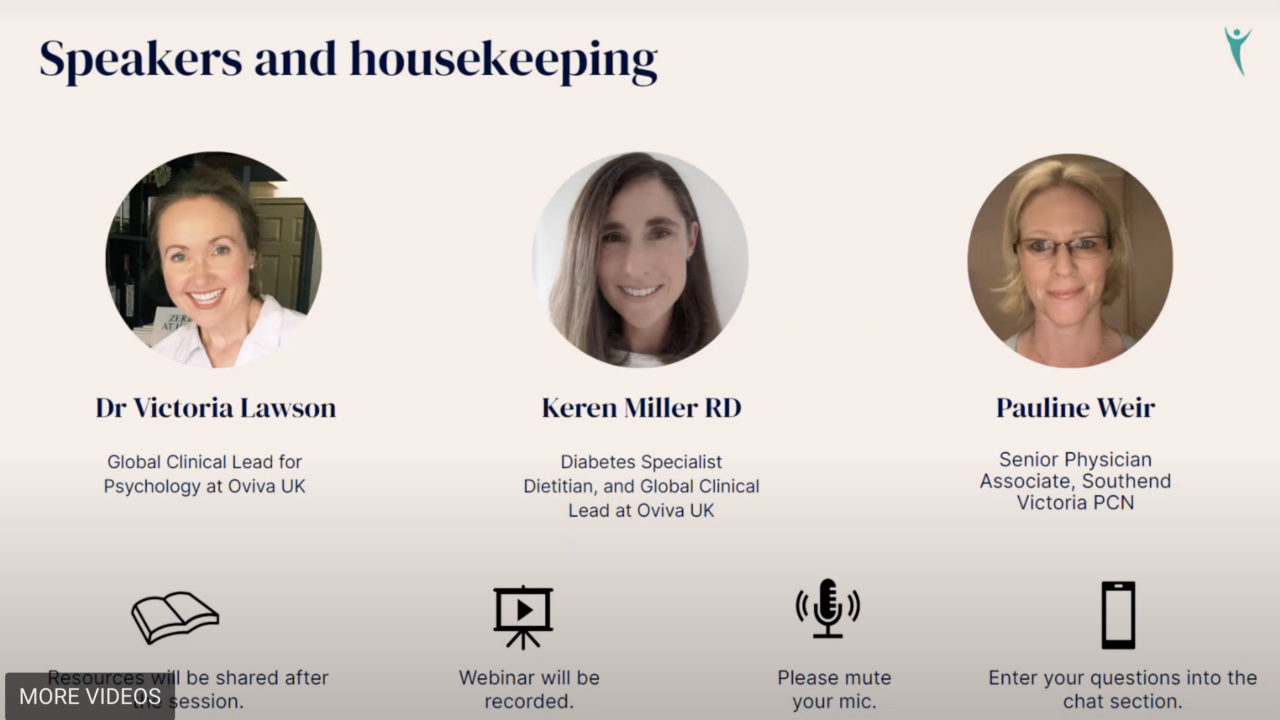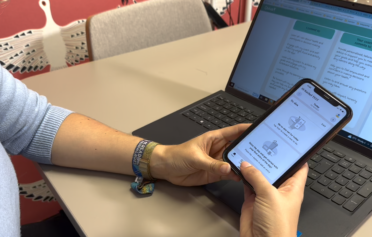
Conversations Inviting Change: having effective communication with your patients

Webinar overview
During this webinar, Dr. Vicky Lawson, Clinical Lead for Psychology at Oviva offered invaluable insights into challenges often encountered during conversations with patients about their weight. Joining Dr. Lawson, Keren Miller, Diabetes Specialist Dietitian and Clinical Lead at Oviva, delved into the psychological benefits associated with TDR (Total Diet Replacement) for our participants. Keren explored the relevance of behaviour change during the NHS Type 2 Diabetes Path to Remission programme.
Adding to the depth of knowledge, external speaker and Senior Physician Associate Pauline Weir generously shared her expertise in overcoming barriers with patients not only at the point of referral but also throughout their journey and beyond.
Highlights of the webinar

Overcoming the challenge of bringing up the topic of weight during conversations with patients
Engaging in weight-related discussions with patients is a multifaceted challenge in healthcare. There is often a concern about negative consequences and damaging relationships with patients, as well as not having the time and resources to raise a sensitive topic. Moreover, personal body size perceptions can impact these conversations. Recognising and addressing these challenges is essential for more effective patient conversations

Benefits of TDR from a patient experience
Many participants on the programme have had a positive experience with TDR that go beyond significant weight loss, including a structured daily routine, improved sleep, better planning abilities, enhanced control over eating, renewed hope for their health, and constructive conversations with their families about prioritising their needs.

Raising the issue of weight – what works?
The “Ask, Advise, and Assist” method is an approach that can be used to talk about weight. It begins with “Ask,” which involves initiating a non-judgmental weight conversation. During “Advise,” take this time to offer evidence-based guidance for behaviour change. Finally, in “Assist,” connect patients with resources and support for effective change. Visit our page below for more information on our programmes:
Watch the full webinar now



